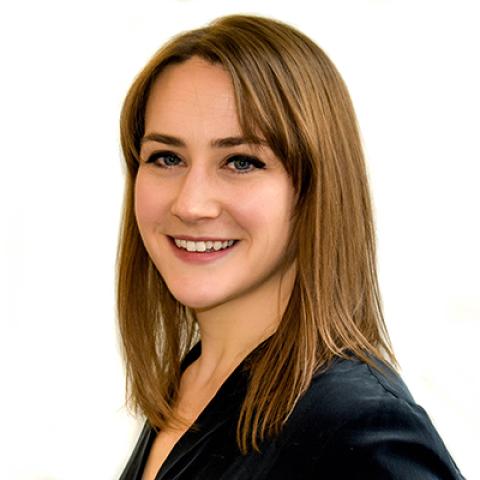Developmental psychology PhD
For us, community is a key word. At the Institute of Child Development (ICD), you'll join a close-knit group of faculty, staff, and peers who are driven to make a difference and who will support you as you grow as an academic and researcher. For more than 90 years, our faculty and students have worked together to make discoveries that increase knowledge about human development and improve lives.
In our program, you'll not only study what you love, but also develop the skills needed to teach others and translate science into practical solutions for children, youth, and families.
The structure of our program reflects our community-based philosophy. We offer guaranteed full funding for five academic years and embrace an academic community mentorship model, which means that students apply to our department instead of to work with a particular faculty member. As an ICD student, you'll be free to explore different topics in the field of developmental psychology and to follow your research and academic interests, no matter where they lead you.
Register for an upcoming info session
Join Director of Student Services Bre Krzyzanowski for an upcoming virtual info session on the PhD in Developmental Psychology.
July 22, 3-4pm CST Register here
September 24, 12-1pm CST Register here
Find what drives you - join us!
Mentorship
Study with award-winning faculty, who are leaders in the field of developmental psychology.
Funding
Receive guaranteed financial support for five academic years.
Specialization
Choose to pursue either our developmental science or developmental psychopathology and clinical science track.
Location
Earn your PhD at a top public research university offering diverse opportunities for interdisciplinary and community-based research.
developmental psychology program in the nation
Source: Ranked in 2022 by U.S. News and World Report
Developmental science track
Interested in conducting research or teaching in the field of developmental psychology? Look no further. In our developmental science track, you can explore your research interests and gain the classroom experience needed for a career in research or academia.
As a developmental science student, you'll study human development across the lifespan and build your expertise in an area of research. Conduct research on topics including cognitive development, language development, executive function, social-emotional development, or neuroscience. If your interests span across topics, choose a research focus that's unique to you and work in collaboration with multiple Institute of Child Development (ICD) faculty members.
Continue building your resume by taking electives or declaring a doctoral minor. You’ll also have the opportunity to pursue interdisciplinary research with experts from across the University of Minnesota (U of M), a top public research university.
The developmental science track takes five years to complete.
Curriculum
Our curriculum is structured to support you as you grow as an academic and researcher. You'll build your expertise, explore your interests, and acquire the skills needed to be a leader in higher education or research settings. The developmental science track takes five years to complete.
Year 1
Take foundational courses in cognitive, social-emotional, and biological development processes, ethical conduct of research, and statistical methods. Begin conducting research and identifying your area of specialty. Work with faculty to learn how to craft competitive fellowship applications.
Year 2
Take advanced developmental psychology courses and choose special topics courses that interest you. Continue to deepen your research interests and learn how to effectively disseminate research information by presenting your first-year research project to the ICD community.
Years 3-5
Hone your teaching skills by developing and teaching your own section of Introduction to Child Development. Continue working with faculty members to define your research expertise and prepare your prelim and final dissertation defense.
Developmental psychopathology and clinical science track
Blend research and clinical practice. In our developmental psychopathology and clinical science track, you'll study psychopathology in the context of development, build a foundation in developmental research, and gain the skills necessary to become a licensed clinician. You'll take developmental psychology courses with your cohort at the Institute of Child Development (ICD), as well as clinical training courses in the Department of Psychology. In addition to coursework in developmental and clinical psychology, you'll complete clinical practicums and a year-long internship. You'll also receive APA-accredited clinical training through the University of Minnesota Department of Psychology.
The clinical science track takes six years to complete, including the internship.
Curriculum
Our curriculum is structured to support you as you grow as an academic, researcher, and clinician. You'll build your expertise, explore your interests, and complete courses and APA-accredited clinical training through the Department of Psychology.
Year 1
Take foundational courses in cognitive, social-emotional, and biological development processes, ethical conduct of research, and statistical methods. Begin conducting research and identifying your area of specialty. Work with faculty to learn how to craft competitive fellowship applications.
Year 2
Take advanced developmental psychology courses and begin taking clinical training courses. Continue to deepen your research interests and learn how to effectively disseminate research information by presenting your first-year research project to the ICD community.
Years 3-5
Hone your teaching skills by developing and teaching your own section of Introduction to Child Development. Continue working with faculty members to define your research expertise and prepare your prelim and final dissertation defense. Begin completing clinical practicum hours to prepare you for your internship.
Year 6
Complete your one-year, full-time APA-approved clinical internship.
We're driven to make a difference
Quote from Alyssa Palmer

You have a community and many resources here to help you get started and guide you through the graduate school process. No one expects you to know everything, and no one does know everything, especially when starting out.
Careers
Upon graduation, you'll be prepared for careers in research, higher education, or clinical developmental psychology. The U of M Graduate School provides programs, resources, and events to help you with every step along the way—from identifying potential career paths, to developing skills to compete for them, to managing your career.
ICD alumni are leaders in the field of developmental psychology. As a graduate of ICD, you'll join a tight-knit network of scholars that will continue to support you, no matter what career path you choose.
Graduates of the developmental science track now work at organizations, including:
- Public and private research universities
- Liberal arts colleges
- The National Institutes of Health and other government agencies
- Non-profit organizations that address issues like social policy
- Education publishing and assessment corporations
- Public broadcasting networks
Graduates of the clinical science track have pursued careers at:
- Children’s hospitals
- Medical schools
- Outpatient clinics
- Stress and anxiety clinics
- Public and private research universities
- Elementary schools
- Domestic violence prevention organizations
Quote from Brie Reid

I’ve loved my experience at ICD. I’ve been able to work with people and projects that prior to graduate school I would have never thought were possible, and it’s helped me to develop my research niche and ask research questions that are really meaningful to me.
How to apply
Admissions requirements and deadline
Timeline:
Deadline: December 1
We accept applications for our PhD in developmental psychology for a fall term start each year.
Our admissions committee evaluates applications holistically. Strong candidates have a combination of research and education in psychology or related subjects and show promise to become leading researchers in the field of developmental psychology. Each year, we aim to welcome 10 new students.
For a snapshot of our previous admissions data, please visit The Graduate School’s program statistics webpage.
You’re eligible to apply if you’ve completed:
- a bachelor’s degree or equivalent, earned before the fall start of the PhD program (minimum undergraduate GPA: 3.0)
- at least three courses in Psychology (Recommended: Developmental, Abnormal, and Research Methods)
- one course in statistics
After you submit your application, you’ll receive an email confirmation. Application review begins directly after the deadline and continues through mid-January. An admissions committee made up of faculty from ICD will review your application and pass along their recommendations to the entire faculty for a final decision. Students who are offered admission will receive an invitation to our Prospective Student Weekend, which takes place the last full weekend in February.
Test scores
For the 2025 admissions cycle, GRE scores will be required for admission. Applicants are required to take the GRE General test. The GRE Psychology Subject test is optional. Individuals who previously took the GRE test (General or Psychology Subject) do not need to re-test, provided scores are not more than five years old.
Please review guidance on taking the GRE from the Graduate School. Educational Testing Services (ETS), which administers the GRE, has a Fee Reduction Program that some U.S. citizens and resident aliens may be eligible for based on demonstrated financial need, unemployment, or participation in national programs that work with underrepresented groups.
Information for international students
For students whose first language is not English, the Test of English as a Foreign Language (TOEFL) is required. The only exception is for non-native English speakers who completed the entirety of their undergraduate degree (four years) in an English-speaking country within the last five years. You’ll need to enter your self-reported TOEFL scores in the online application and send your official electronic TOEFL scores to the University of Minnesota (institution code 6874). View the U of M’s TOEFL score guidelines and expectations. Please note that the Institute of Child Development requires a TOEFL speak score of 27 or higher.
Tuition and funding
We guarantee full funding for each student for five academic years. Funding includes a monthly stipend, health insurance, and a full tuition waiver. Stipends vary based on the type of financial support each student receives. Types of financial support include graduate assistantships (RA/TA), fellowships, traineeships, or scholarships. We have a long track record of our students securing fellowships from prestigious agencies like the National Science Foundation. As an ICD student, we'll work with you to find funding opportunities throughout the PhD program.
As a student at ICD, you’ll receive a brand-new laptop (Dell or MacBook Air) at the start of the program that you may use during your PhD studies. You’ll receive $850 to use for professional development purposes during your time in the program. You'll also be eligible for $500 in travel funding annually to present at conferences.
Each year, the U of M Office for Diversity in Graduate Education awards the Diversity of Views and Experience Fellowship (DOVE) to about 20 first-year students from underrepresented groups. The fellowship provides a living stipend, tuition, and subsidized health insurance for one academic year. If you wish to be considered for the DOVE Fellowship, please note your interest on your application. You must be a U.S. citizen or permanent resident to be eligible for this award.
Additional resources
- Information about cost of living in Minnesota
- Graduate assistant health plan information
- University fellowships and grants
- CEHD fellowships, scholarships, and grants
- Office for Equity and Diversity funding opportunities
- Diversity of Views and Experiences (DOVE) Fellowship
- Disability Resource Center scholarship information
- Women’s Center scholarship information
Application instructions
Before you begin
Before you begin the online application, gather the following materials:
- Explore our faculty members’ areas of research. Identify one or two faculty members whose research interests you. To find out if an ICD faculty member is accepting new students this year, please visit their faculty profile. Before you apply, we encourage you to email the faculty members you're interested in working with to introduce yourself and your research interests.
- Unofficial transcripts: You must submit an unofficial transcript or academic record for each institution you’ve attended.
- Resume or CV: View our CV template to see what information we encourage you to provide.
- Three letters of recommendation: Identify and get contact information for three people who will serve as your recommenders. We suggest that you seek recommendations from current or former professors who can assess your potential for graduate work and speak to your research experience. Share our letter of recommendation prompts with your recommenders.
- Personal statement: Address our personal statement prompts in your statement.
- Diversity Statement: Enrolling and graduating a diverse student body is central to the University of Minnesota's mission. All PhD applicants are asked to submit a diversity statement. Be sure to address our diversity statement prompt in your statement.
- Application fee: $75 ($95 for international applicants). Must be paid online with a credit card. Learn more about fees.
- McNair Scholars, you may be eligible for an application fee scholarship. Learn more.
- Participants in the Next Gen Psych Scholars Program (NPSP) may also be eligible for an application fee scholarship. Please contact Bre Krzyzanowski (krzyz0008@umn.edu) to learn more.
Optional materials
- Diversity of Views and Experiences (DOVE) Fellowship application: If you wish to be considered for the DOVE Fellowship for underrepresented students, please indicate this on the developmental psychology page in the online application. Learn more about the DOVE Fellowship and application.
- Extenuating circumstances statement: If you'd like to provide an explanation of circumstances that contributed to your test scores or GPA, please write a brief statement.
Questions?
We’re here to help. Get in touch with our student services team: icdapply@umn.edu
Quote from Bre Krzyzanowski

As the Student Services Director at ICD, I’m happy to advise and serve students looking to pursue further studies in developmental psychology. Please don’t hesitate to contact me with questions.